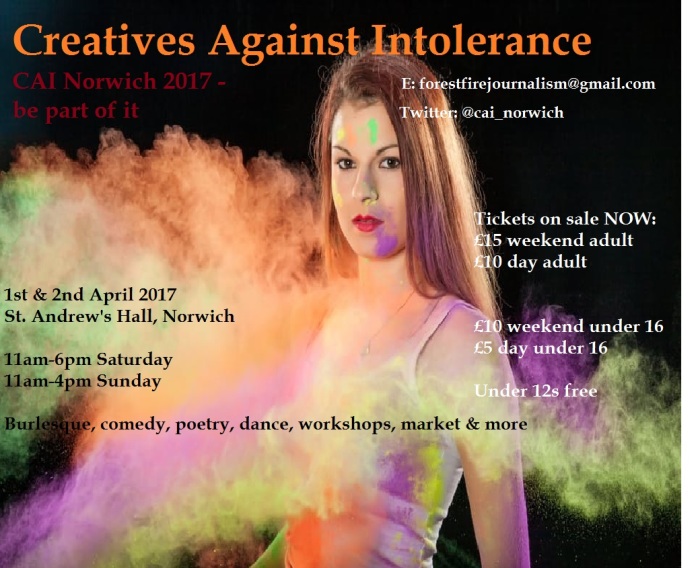Is there worse to come?
The above is an article from today’s Eastern Daily Press, from one of Norwich’s leading insolvency firms, and warns that 2017 is likely to see a rise in insolvencies across the East of England.
I used to work in insolvency – albeit as a lowly admin – and I’ve heard, first hand, on the end of a phone I sincerely wished I hadn’t had to pick up, the pain and rage of people who take the impact of the punch to the gut that is a business going under. Newsflash: those people are rarely the business owners. In most cases, they seem to dust themselves off and move on fairly quickly. Donald Trump isn’t an exception. He got his eventual success, in the form of becoming President of the USA. Most business owners who declare insolvency will go on to achieve success with another venture. Not all of them, of course, but enough to make you sigh and roll your eyes, wondering whether they’ve actually learned their lessons at all. Wondering if they are aware there were lessons to be learned.
The people who suffer most are those who had the least to do with the business failing. The shop floor staff. The admin crew. The cleaners. The people who had to hear me tell them they’d get £800 redundancy, after years – decades, in one case – of turning up day in, day out.
Those people, their pain, their rage, were the reason I wasn’t sorry to leave insolvency. The managers at the company I worked for (not McTear Williams Wood) made it clear that “those people” didn’t matter. We were there to help the directors and company owners get back on their feet.
But, of course, there will be business owners who are devastated by entering insolvency. People who’d poured their heart and soul, their hopes and dreams, and no small amount of time and money, into a goal, only to see it snatched away from them.
I’ve never gone into insolvency, but I’ve had to close a business, and cancel an event, because I literally didn’t have the money to continue. Both times, the loss triggered a bout of clinical depression. Both times, in the run up and the immediate aftermath, I felt suicidal. I can well believe there are others, who do end up declaring insolvency, who feel likewise.
This is for all of them, all of you.
I now work in the sphere of creative negativity, which seems oxymoronic in the context of business insolvency. What possible roses could there be behind those thorns? And how can you be creative about insolvency, unless it takes the form of “creative accounting“, which is somewhat frowned upon?
Let’s break the word “insolvency” up, to start with.
“In” – belonging to, within, inside, bordered by, etc. A five year old child knows what “in” means. So: we are in a position of being bordered by, for the sake of argument.
“Solvency” – the ability to pay one’s just and lawful debts. (The “just and lawful” is important. Remember it.)
So, when we face insolvency, which sounds like a failure, the first creative thinking we can apply is to break up the word, so that, instead of being “unable to meet just and lawful debts”, we are, in fact “bordered by the ability to pay (our) just and lawful debts.”
That puts a new spin on it. We are able to pay our just and lawful debts firstly by identifying which, in fact, are just and lawful – and which are the result of people taking advantage of us.
When I was preparing insolvency cases, the number of times overcharging on the part of suppliers or landlords, or inappropriately charged fees by banks, would only come to light at the point of insolvency was depressing. Businesses seem to love taking advantage of one another, viewing it as some sort of harmless game. (Of course, when the person you’ve been overcharging for goods you supply to them goes bust, odds are your business won’t be far behind… The game doesn’t seem quite so harmless now, does it?) Those were the debts that the insolvency firm refused to honour – they may have been lawful, but they were not deemed just.
There are many ways of “paying for” things, beyond the obvious, financial method. I’m sure we’ve all been told, at one time or another, that “you’ll pay for that” – it usually involved some sort of physical violence.
But we also “pay attention” – and that’s the ability to pay our just and lawful debts that insolvency gives us.
When you declare insolvency, you begin the final stages of running a business. You may be able to keep things ticking over, usually with the help of the insolvency firm who’re representing you, but you can’t do much else. Your main focus, perhaps for the first time, is your debts. You have been given the unique ability to genuinely pay attention to the ways in which you spend money.
We live, as a nation and society, in an era where credit is seen as an automatic and inalienable right. It is considered odd if someone doesn’t have a credit card, or at the very least an overdraft. Almost everyone has used “payday lenders”, some on a regular basis. We have store cards, catalogue payment plans. We see nothing wrong in asking our friends to lend us a tenner every now and then, and even less wrong in asking our families to lend us money to pursue our dreams. Even the Jobcentre will offer “crisis loans“, to people who will never have money of their own to repay them. Businesses run in constant debt to their employees – when you work for someone else, you are paid in arrears, for time you have already given. This becomes manifestly true when you are paid hourly, which often results in people working through illness, because they can’t afford the loss of pay that would result in taking a day off.
Because credit – and therefore debt – is seen as part of the normal functioning of a stable society, we never really think about the debts we’re accruing. We don’t pay attention to the ways in which we spend money. Not until a crisis hits, and forces us to pay attention.
This – the point of paying attention to our debts – is where creative negativity comes in.
Look at your debts.
Pick up two felt tips – one green, one red.
Look at your debts again.
With the red felt tip, mark every debt you had been paying without really thinking about it. Maybe it had been paid by direct debit, or you simply tossed it onto some admin’s desk with a brief “Give them a call and pay that off, would you?” Maybe you even paid them yourself, cheerily greeting whoever answered the phone, not a moment’s pause as you rattled off payment details. In terms of personal debt – because personal insolvency is a fact – perhaps you even smiled while you were paying that debt, remembering the pleasure the goods the debt had bought you gave you.
With the green felt tip, mark the debts you were actively aware of paying. The ones, perhaps, that weren’t always easy to pay. The debts you invariably paid late – or had your admin team make excuses for your not paying. The debts you paid with debt – paying them off on a credit card, for instance.
Now look at the debts you’ve marked in red. What do they represent? What did that credit buy you? Write it all down, every last detail of it.
Do the same with the debts marked in green.
Do you see any patterns?
In my personal life, before my self-employment began to stabilise, it was fairly common for me to pay my water rates late. Not by much – a week at most, ten days, once. The bills I paid without thinking were mobile phone top ups, the monthly direct debits for the internet, and for my pension.
The pattern? I didn’t think about things I’d chosen to have, and that fulfilled intellectual and emotional “necessities” – communication, and security. Those things were so important to me that of course I would pay for them promptly.
Having clean water readily accessible, however… (I justify this to myself by pointing out that, at the time, and still, my toilet is blocked and my boiler broken: things aren’t financially stable enough, without credit cards or loans, which are outside my ability to procure, to attend to these things. I have water, but it’s not hot water.)
When you don’t have a lot of money, you end up thinking about every debt. But there are some you resent paying, and others you don’t. Everyone moans about the price of bread: no one complains at the cost of champagne.
What patterns have you identified? The debts you pay without too much thought or pain, that you pay on time, are the things that are important to you.
Knowing what those things are will tell you what you need to focus on in your next business venture, your next job.
For me, the important things, the areas of my focus, are communication, and security.
I communicate by writing, in ideas and words. As to security? When I look at the things I’m regularly paid for, I realise I’m being paid for providing others with the security of reliable, high-quality results. I’m offering the security of a new way of looking at personal and business problems, and, with that, the security of knowing you can get through them.
When you’re facing insolvency, you’re bordered by the ability to pay attention to your just and lawful debts. To take a look at them through the lens of creative negativity, and see the patterns that are creating the tapestry of your life. The threads of endings, and of beginnings.
What’s your focus? And what are you doing, what are you going to do, to follow it?

















